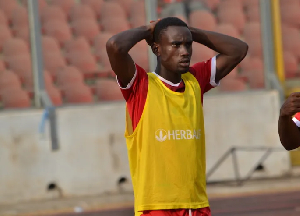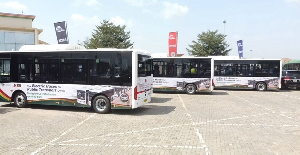The dilemma over whether the New Patriotic Party (NPP) should or should not contest the three parliamentary seats presently held by the “Nkrumah Corporation” – otherwise known as the Convention People’s Party (CPP) – is one that must be critically reexamined within the practical context of both political reality and the zero-sum-game that is the veritable ideology of Nkrumaism.
The seats in question are Evalue-Gwira, Ellembele and Komenda-Edina-Eguafo-Abrem. The latter seat is of especial interest and significance, in view of the fact of its holder having played quite a remarkable role in the NPP’s bid to thoroughly and constructively overhauling Ghana’s system of public bureaucracy.
Then there is also the equally significant and collaborative role of CPP stalwart Mr. Freddy Blay, who has served as First-Deputy Speaker of Parliament under NPP dispensation.
And, indeed, while the preceding cases are not unprecedented in advanced democracies and, in fact, salutary in terms of the fact that such collaboration foregrounds national development, as opposed to pure political partisanship, nevertheless, if unnecessarily prolonged, it may yet contribute to the establishment of an unsavory entitlement tradition that may nightmarishly haunt the more generous partner in the long run. And here, of course, the allusion is to Dr. Paa Kwesi Nduom’s evidently uneasy and short-lived partnership with the government of the New Patriotic Party.
Needless to say, while he, indeed, appears to have quite creditably acquitted himself as Minister of Public Sector Reform, particularly vis-à-vis the $ 547 million-dollar Millennium (actually “Millennial”) Challenge Account Compact, ideologically speaking, Dr. Nduom, an American-trained entrepreneur who recently resigned his cabinet portfolio, never felt quite at home in the Kufuor Administration. And for those of us who avidly followed the mainstream political career of the CPP-Member of Parliament for Komenda-Edina-Eguafo-Abrem (KEEA), it became increasingly clear that the man primarily opted to serve in the NPP government more as a stepping-stone – or launching pad – to vault his barely veiled presidential ambitions, as it must, indeed, have grimly dawned on him that the Nkrumah Corporation might never regain the enviable reins of governance in Fourth-Republican Ghana in his lifetime. In the preceding sense, then, Dr. Nduom came to be aptly perceived as a brazen political opportunist, just as his ideological hero and patriarch, Mr. Kwame Nkrumah, had been in his mercurial relationship with the leadership of the seminal United Gold Coast Convention (UGCC). On this score, therefore, the question of whether Dr. Nduom resigned his post of his own volition – or accord – or perhaps was, literally, pushed out by Ghana’s Chief-of-State, is hardly of any moment. For like his Marxist-oriented patriarch, Dr. Nduom, a veritable capitalist entrepreneur in practice, came to the proverbial table with a game-plan and, so far, the Edina-Boy has done himself a lot of good.
The problem here, however, regards the apparently facile and smug ideological temperament of the New Patriotic Party leadership which, rather than single-mindedly and purposefully increasing its 34-seat majority in the Ghana National Assembly, chose, rather curiously, to play Santa Claus – or Father Christmas – by deciding not to contest the three aforementioned parliamentary seats. And even as of this writing, the top-hierarchy of Ghana’s ruling party was reported to be deliberating on whether to contest those seats, particularly now that Dr. Nduom appears to have decisively and accurately determined that the chicken-coop is no nest for a bald-eagle.
And here, it must be somberly pointed out that in deliberately and, perhaps, tactically deciding not to contest the three aforementioned seats, the NPP has created an unhealthy political tradition in favor of the ideologically hard-nosed – or immutably uncharitable – Convention People’s Party. And unless it promptly and definitively breaks with this patently inexpedient strategy, the three parliamentary seats in question may in due course come to be legitimately, albeit undemocratically, perceived as the especial preserve of the Nkrumah Corporation, even as today the Volta Region of Ghana is putatively perceived as “The World Bank” of the so-called Provisional National Democratic Congress (P/NDC).
The preceding notwithstanding, the far more serious fallout from such inexpedient move, on the part of the NPP, is the fact that it appears to have created an unsavory beachhead for the ambitiously vaulting likes of Dr. Nduom to readily threaten the NPP’s democratic grip on Ghana’s reins of governance, particularly in a fiercely fought three-way presidential contest, as could likely occur come Election 2008.
In sum, Dr. Nduom could well become the Ralph Nader of Fourth-Republican Ghanaian politics. such likelihood inheres in the near-certain fact of Dr. Nduom being erroneously perceived by the electorate as a genuinely aggrieved – or shortchanged – member of the substantive New Patriotic Party. Consequently, there could even emerge a remarkable block of NPP supporters and sympathizers who may decide to indicate their displeasure with their perceived mistreatment of Dr. Nduom by choosing to cast what has come to be termed as a “protest vote.” And if the preceding happens, the NPP could be in real trouble.
In sum, our contention is that Ghanaian democracy has not reached the foolproof state of “Comfortable Statesmanship,” whereby seemingly expedient cabinet appointments may be executed purely on the basis of merit rather than a combination of merit and ideological orientation or political suasion. Perhaps one can better appreciate matters simply by taking a cursory look at the fraught field of NPP leaders and hacks vying for their party’s presidential nomination. In such a patently sophomoric battle-royal, an Nduom readily becomes a monkey-wrench, as it were.
Equally seamy and inexpedient was the decision of the NPP executive to shut out its loyalists from contesting the aforementioned parliamentary seats, in favor of the Nkrumah Corporatists, almost as if to suggest the democratic unwholesomeness or virtual political insignificance of these NPP loyalists. In all likelihood, such strategy was aimed at vitiating the stranglehold of the so-called Provisional National Democratic Congress (P/NDC) in the aforementioned constituencies as well as nationwide. If so, it was still a wrongful strategy; for it would have been far better to have allowed marketable NPP loyalists to contest those constituency seats, as well as others, than take the primrose-path of “adversarial solidarity,” a veritable contradiction in terms.
For in real terms, both the CPP and the NDC are veritable ideological clones. And the sooner the likes of Chairman Mac Manu recognized the foregoing, the better it augurs for the Party. In sum, 2008 offers the NPP an auspicious moment to break, once and for all, with the cancerous politics of unprovoked self-flagellation – or is it “misplaced nostalgia”?
But that the CPP and NDC are ideological clones is best exemplified by Dr. Sekou Nkrumah’s recent decision to join heads with the NDC rather than the NPP, once the son of the founder and Life-Chairman of the Nkrumah Corporation tactically determined that Joe-Jato’s political horse had a relatively fairer shot at clinching a Kentucky-Derby trophy in a break-neck race with the ruling party, as it were, than the Nkrumah Corporation achieving the same. Of course, those of us who know better can only shrug and sigh with amused contempt: Fat chance!

Views expressed by the author(s) do not necessarily reflect those of GhanaHomePage.
















